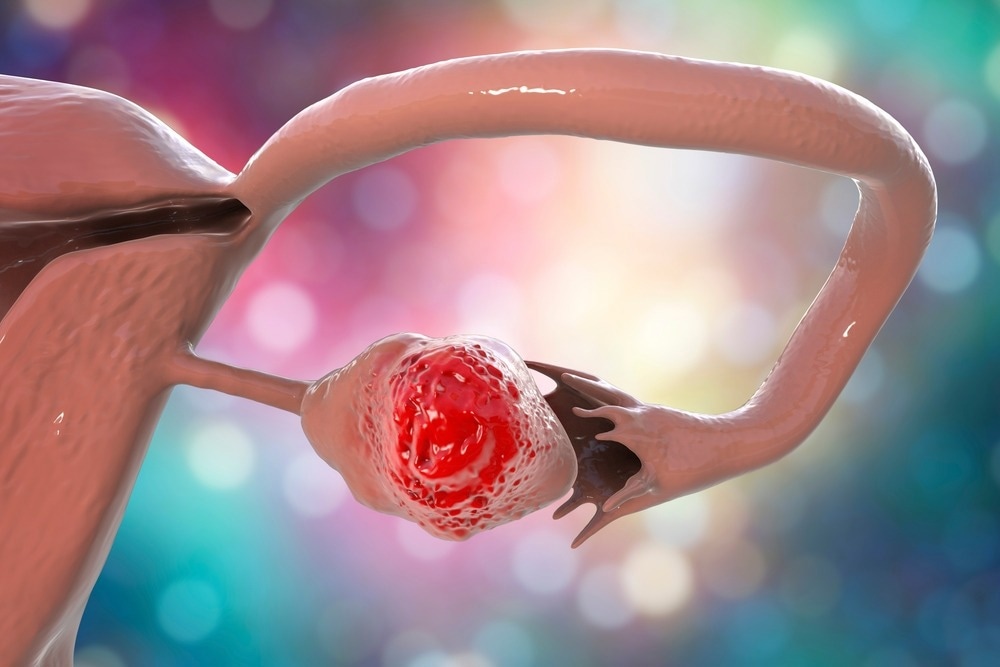In a recent study published in the JAMA Network Open, researchers explored the difference in female ovarian reserve before and after receiving the coronavirus disease 2019 (COVID-19) vaccine.
 Study: Comparison of Female Ovarian Reserve Before vs After COVID-19 Vaccination. Image Credit: Kateryna Kon/Shutterstock.com
Study: Comparison of Female Ovarian Reserve Before vs After COVID-19 Vaccination. Image Credit: Kateryna Kon/Shutterstock.com
Background
The impact of the COVID-19 vaccine on female ovarian reserve is a crucial area of concern for public health officials. The American Society for Reproductive Medicine suggests that a combination of sonographic antral follicle count (AFC) and anti-Mullerian hormone (AMH) levels should be used to evaluate ovarian reserve. Studies have shown that there were no alterations in AMH levels after vaccination.
The study aimed to investigate the correlation between COVID-19 vaccination and AFC and AMH levels in women undergoing fertility treatment, considering the alterations in AMH assays and the requirement for cross-referencing other biomarkers.
About the study
A retrospective cohort study was conducted on new female patients who visited the Texas Children's Family Fertility Center in Houston between January 2016 and December 2021. The study adhered to the STROBE reporting guideline.
The study's main focus was measuring ovarian reserve, which was determined by AFC or AMH level. The study utilized heteroskedastic linear regression to adjust heteroskedastic data. The outcome variables included age, body mass index (BMI), type of AMH assay, hemoglobin A1c (HbA1c) level, and vaccination status. The study's dependent variable was either the AFC or AMH level.
Results
Out of the total of 1,655 patients assessed, 974 fulfilled the requirements for AMH analysis, while 1222 met the criteria for AFC analysis. The study analyzed 836 patients before vaccination and 138 patients after vaccination for AMH. The group that had not yet received vaccination was comparatively younger and exhibited a lower average AMH level. However, there were no notable differences in the median HbA1c and BMI levels. On average, participants received 2.19 doses of the vaccine, and their AMH levels were assessed between four and 356 days after the first dose.
The study found a notable contrast in vaccinated patients based on the type of AMH assay used. Specifically, there were 259 patients in the prevaccination group compared to 137 patients in the postvaccination group who were tested using the current assay. Age and AMH platform were found to be associated with AMH value, while vaccination status exhibited no such association in a linear regression model. Almost 70 patients in the cohort showed no difference in their average AMH levels before and after receiving the COVID-19 vaccine.
The median AFC was 18 and 20 for the prevaccination and postvaccination groups, respectively. Total AFC was found to be correlated with age and log BMI in a linear regression model, while vaccination status did not show any correlation. Positive vaccination status was also linked to higher AMH levels as per a subgroup assessment of the postvaccination population adjusted for age, HbA1c, and BMI.
Conclusion
Overall, the study results indicate that COVID-19 vaccination does not affect ovarian reserve, as determined by various biomarker tests for AMH and AFC. Additionally, subgroup analysis did not reveal a clinically significant difference in the AMH levels before and after COVID-19 vaccination.